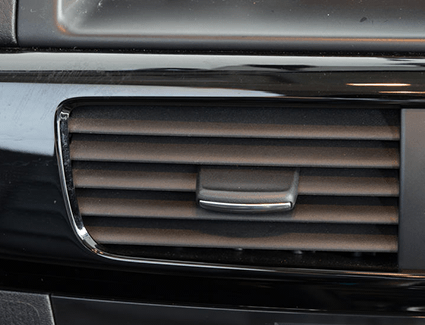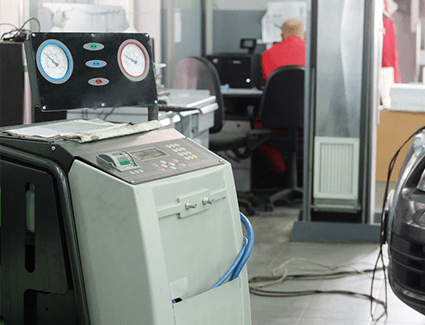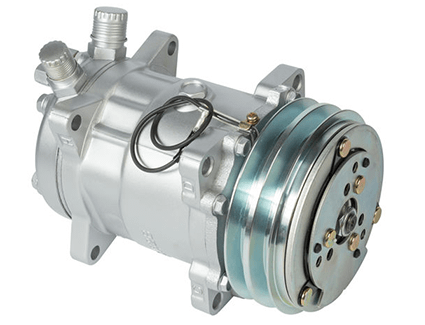4 Things To Know About A/C Refrigerant in Houston

Refrigerant is something that you may not think about often, but it makes driving around in Texas summers bearable. It's a key component in your car's HVAC system, so it keeps the cabin cool and free of humidity. We'll take a look at what refrigerant does on this page, as well as go over three main types of refrigerant.


4. What Is Refrigerant?
Refrigerant is a component that's key to the functioning of your vehicle's A/C system. When the A/C is running, refrigerant changes back and forth between gas and liquid. Gaseous refrigerant enters the compressor, where it's compressed until it becomes a high-pressure liquid. It's then sent through hoses to the condenser, which acts much like a radiator to dissipate heat and remove it from the liquid. Once it's gone through the condenser, it travels to an expansion valve or an orifice tube, after which point it's turned back into a gas. An accumulator or dryer removes moisture from the gas, and then the refrigerant moves to the evaporator. Air from the cabin is moved over the evaporator core, where its heat is absorbed by the refrigerant. Then, the now-cool air gets blown back into the cabin. After going through the evaporator, the refrigerant begins the process all over again.
It's a complex system, and it's made even more complicated by the fact that there are different types of refrigerant--and using the wrong kind could cause damage to the entire system! We'll take a look at the three most iconic refrigerants below.
3. R12 Refrigerant
R12 is an effective refrigerant that was used in most cars for numerous decades. But if you look at your nearest parts store, you might notice that there aren't any cans of R12 on the shelves. That's because R12 is a chlorofluorocarbon, which you might know better as a CFC. In the 1980s, it was discovered that CFCs were the cause of a growing hole in the earth's ozone layer. In reaction to this realization, CFCs were banned in 1994. Every new car made from that year onward had to use refrigerants that didn't contribute to ozone depletion.
If you happen to own a car from earlier than 1994, you don't have to worry about expensive retrofitting. Vehicles that were made before that year and still have R12 A/C systems are allowed to replenish their systems with more R12. But you won't find it on shelves, since it's a service that needs to be performed by an EPA-certified technician.
2. R134a Refrigerant
In the face of R12's decline, R134a became the refrigerant of choice. Rather than being a CFC, R134a is a hydrofluorocarbon, or HFC. HFCs don't deplete the ozone layer, which is good news. The bad news? R134a is environmentally unfriendly in other ways. Specifically, it's a greenhouse gas that sticks around in the atmosphere for quite some time before breaking down. In fact, R134a that gets into the atmosphere may take 13 years before it breaks down. Though it hasn't been banned like R12 was, R134a is slowly being replaced by even better options.


1. R1234yf
R1234yf is more than just a jumble of letters and numbers: it's a next-generation refrigerant that has none of the downsides of previous ones. It's a hydrofluoroolefin, or HFO, and it's better for the atmosphere than R134a. Despite this, it has similar thermal properties, which means that maintenance and service won't be changed much. However, it does have a few downsides. The first is that it costs more than R134a. However, as demand increases and supply grows, the price may begin to drop. The other downside? It's mildly flammable. This means that older A/C systems won't be able to use R1234yf. Instead, it's meant for use with special systems that have sturdier evaporators that are more resistant to leaking.


